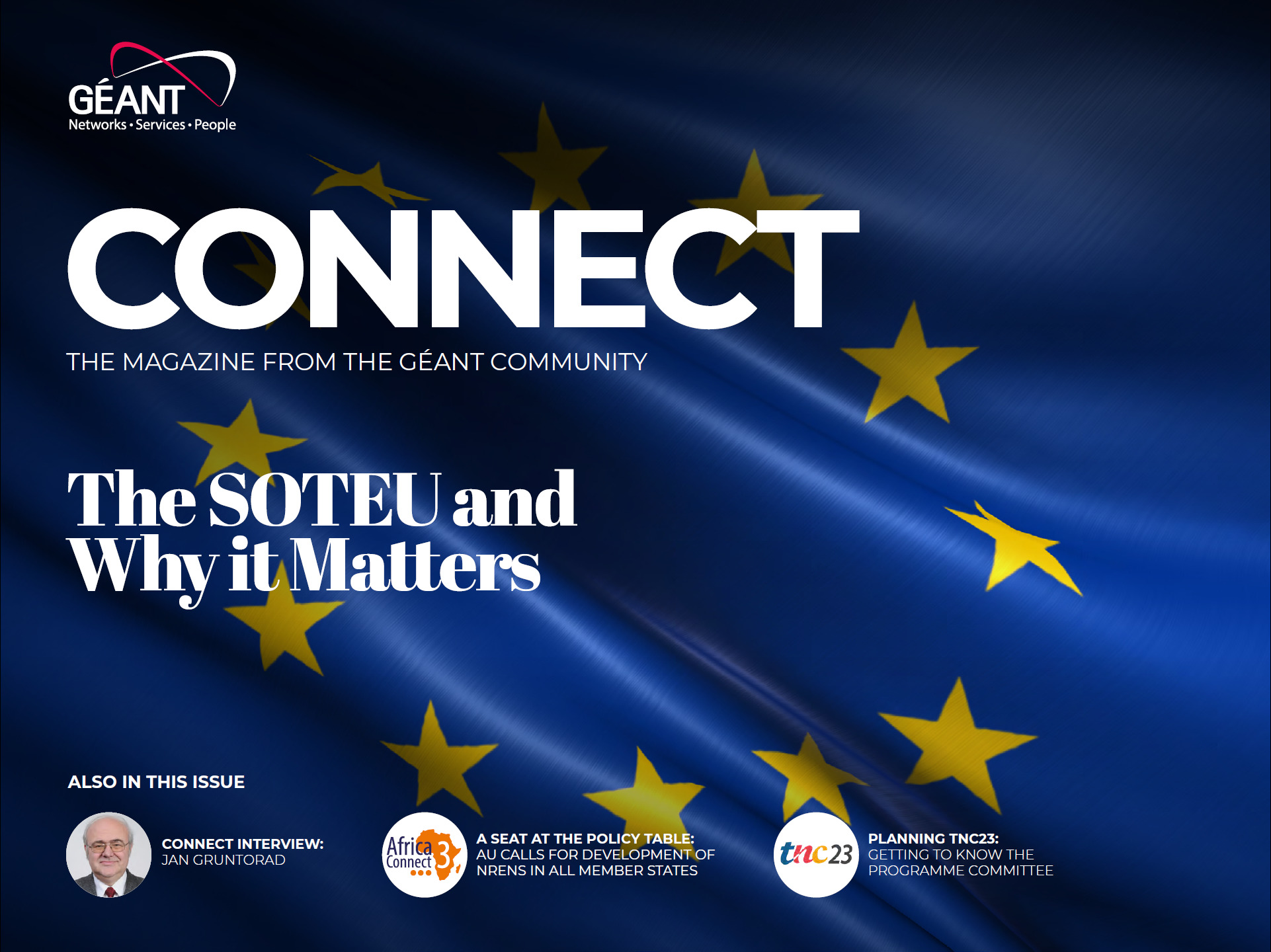As part of our interview series on the GÉANT community’s Internet pioneers, CONNECT reached out to former CEO of the Czech Education and Scientific Network (CESNET), Jan Gruntorad, to learn more about how he became the “father of the Czech Internet” and to know more about his legacy at CESNET. Jan initiated the country’s connection to the European Academic and Research Network (EARN) in the early 1990s and, shortly after, established CESNET. In this interview, he gives us an insight into his impressive professional achievements.
Jan, because of your work introducing and improving Internet services for the research and education community in Czech Republic, you are often called the “father of the Czech Internet”. We are curious to know how you first became interested in this field and, given the status of Czech networks at the time, if you would have ever dreamed of being at the forefront of such innovations!
After graduation, I worked at the Computer Centre of the Czech Technical University where I focused on data communications. I was working with the mainframe computer of the Soviet Union, with limited communication capability despite the demand from the users pushing to extend these facilities. When I started focusing on this field, in my country there was no other means of communicating and transferring data than by means of telephone network. In 1984, while working full time, I started my PhD studies at the Faculty of Electrical Engineering, where I focused on the digital transmission of data via telephone network using digital modems. When in 1988 I had the opportunity to do a 4-month exchange programme at the Technical University in Copenhagen, Denmark, I was confronted with a whole new reality!
At the beginning it was tricky to integrate there as they thought I was a spy! They were always watching what I was working on, and I didn’t even have my own personal work station! I depended on other employees to use their computers. It was here that I saw, for the first time, people typing on terminals during a lecture at a conference, they were answering emails! So, of course, I wanted to get an email address for myself, but unfortunately my stay in Copenhagen was almost coming to an end and, in my country, we didn’t have access to the internet yet. This was my introduction to the internet and the start of what then became my life-long commitment!
Fascinating! You started the team that connected the mainframe computer at the Czech Technical University in Prague to the Internet, which eventually led to the official opening of Internet services in the country in 1992. Can you tell us more about that moment?
It was on my way back from Copenhagen that my team and I started this process. Due to the political turmoil that my region was experiencing in the late 1980s, getting the authorisation to connect our computer to the internet proved challenging. But after a couple of applications, we were finally able to get the authorisation to make that happen in 1990. We got a leased line provided by Czechoslovak Telecom that connected our mainframe computer to Linz, Austria. It was a very slow line (9.6 kbit/sec) which didn’t allow the sharing of images and videos, but it opened the door to international connections.
Thanks to some additional funding, eventually we were able to expand the network buying faster modems and more routers year after year! In 1992, we hosted a meeting at the University to inaugurate the connection to all the major cities in the country at the very modest speed of 19.2 kbit/sec and eventually it expanded countrywide in 1993. Unfortunately, we didn’t get any pictures at the inauguration because we really didn’t realise the magnitude of what was happening and the impact it would have had in the years to come.
30 years have passed since then, and you are still committed to supporting the Community in Czech Republic and beyond. What keeps you motivated to stay in this field?
I have always liked to work on data communications, modems, and routers. It is my technical background after all. And I cannot stop being impressed by the endless achievements in the field in our community. Since we connected the first line in Czech Republic, the internet speed is now 10 million times faster! I enjoy being part of the evolution of the internet.
From 2003 to 2009, you were part of the Board of Directors of DANTE (later merging with TERENA to form the GÉANT Association). What was your and CESNET’s role in this transformation?
My time on the Board of DANTE was really interesting. Our mission was to lay out the scene for a simpler and more transparent research and education community, as by then there were too many actors involved. First, we designed the GÉANT network with a speed of 10 Gbit/sec. Then we moved to the second phase of this project, GN2 network, which was the first generation of network using dark fibre networks offering switched point-to-point connections in addition to normal IP traffic.
My role was bringing in my experience working at CESNET, as Czech Republic was one of the first countries in Europe that got access to dark fibre networks in 2000 and enabled a connection of 2.5 Gbit/sec between Prague and Brno. CESNET might be a small NREN, but we have significant research capacity, and we are working to make use of our work on a pan-European level.
Just last year, CESNET celebrated its 25th anniversary with some main achievements in the e-infrastructure landscape. Can you tell us more about it?
Yes, we are undergoing a significant integration process. In 2020, the Ministry of Education decided that e-infrastructure services would need to be integrated and, therefore, CESNET slowly transformed from being just an NREN to becoming an e-infrastructure provider. Now, we are working to integrate the cloud centre and the HPC centre. The process will run until 2028 and is a very complex task to integrate them to be a one-stop shop for researchers looking for applications in AAI or user support for example.
So, 2021 was a year to remember! Not only for CESNET’s anniversary, but also because you were introduced to the Internet Hall of Fame. This was extra special as you are the first personality from Central and Eastern Europe to be awarded. Now that you have wrapped up your responsibilities as CESNET CEO, what does the future have in store for you, Jan?
Until the end of 2022, I will still be working at CESNET part-time on two big projects. This year, I was also re-elected to CESNET Board of Directors and therefore will still be around for the next few years but on a more limited scale! On a personal level, I will be focusing on my family. I have six grandchildren and plan to spend as much time with them as possible, playing chess and sports while they still want to hang out with their grandfather!

Read or download the full magazine here







